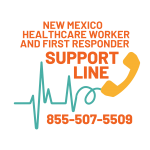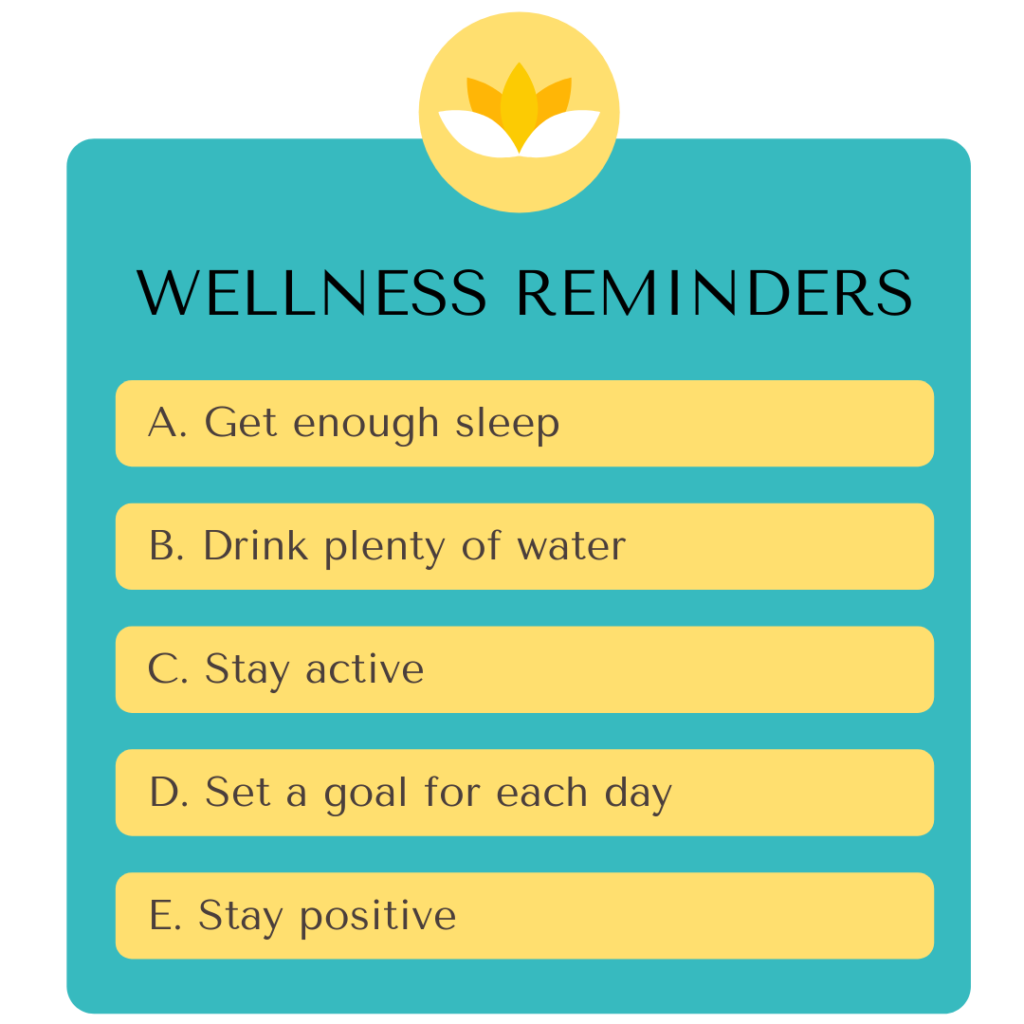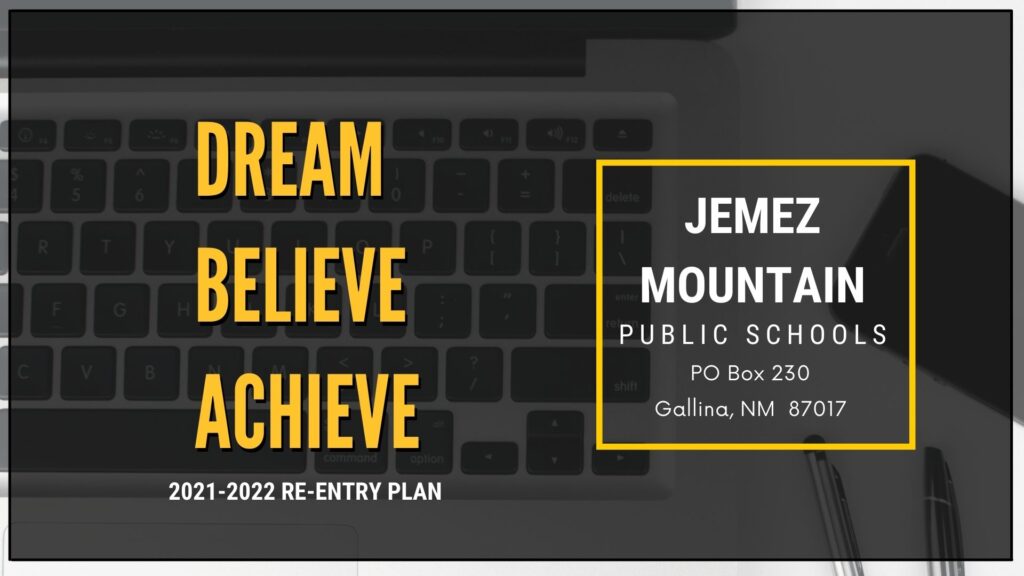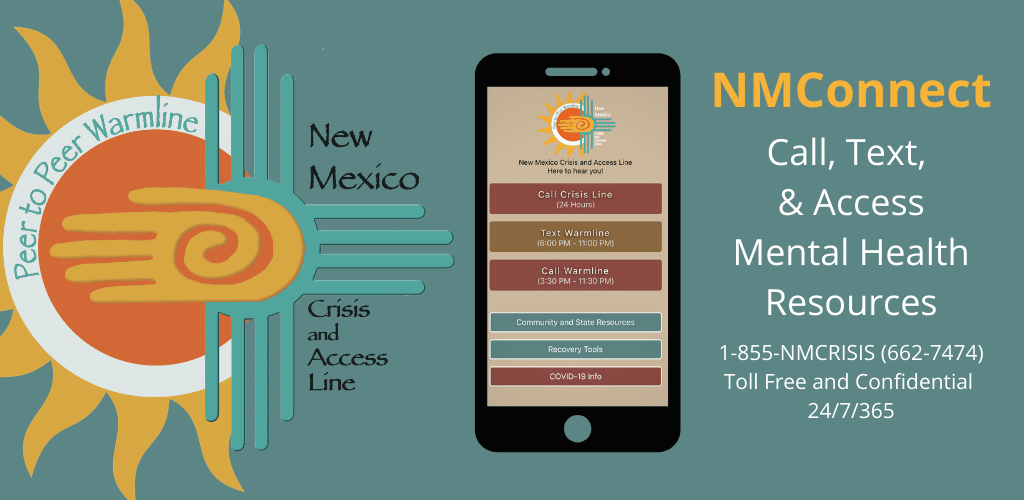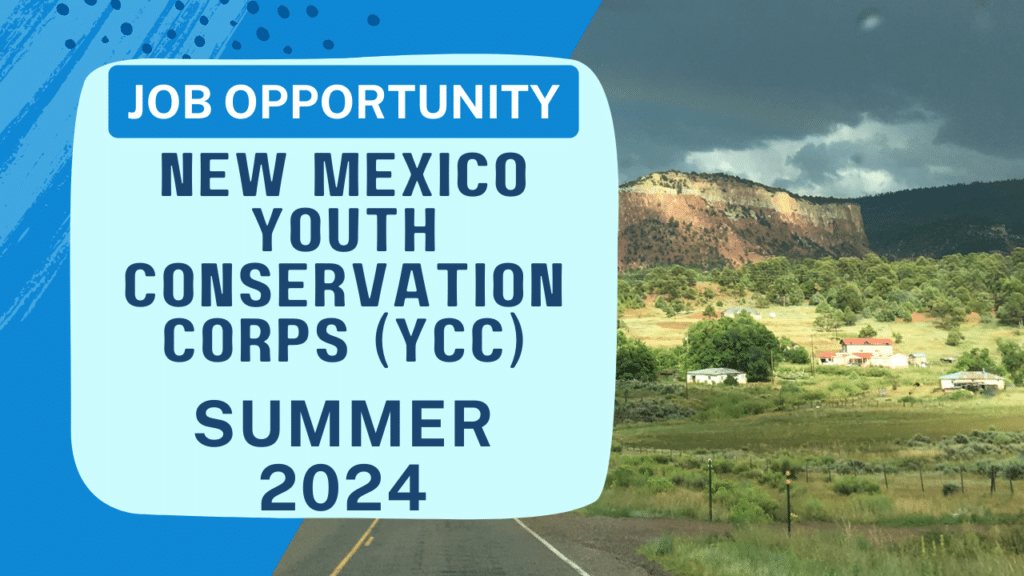Resources
BULLYING PREVENTION: PROVIDING SAFE SCHOOLS FOR ALL STUDENTS
The Safe Schools for All Students Act, passed during the 2019 New Mexico Legislature, repealed and replaced § 22-2-21 NMSA 1978 and created § 22-35 NMSA. New Mexico Administrative Code (NMAC) 6.12.7 was amended in response to this new law. By January 1 ,2020 each school board or governing body shall adopt bullying prevention policies that reflect these changes. The Safe Schools for All Students Policy Framework has been created to assist in that process. Please see the Safe Schools for All Students Policy Framework here.
RESOURCES
I Am A Witness Anti-Cyberbullying Campaign
United States Department of Education Office for Civil Rights Letter
Bullying Prevention Assurance
10 Questions Parents Can Ask to Ensure a Bully-Free School
Center for Disease Control and Prevention, School Violence: Prevention Tools and Resources
Bullying, Harassment, & Civil Rights: An Overview of School Districts’ Federal Obligation to Respond to Harassment – This video, developed collaboratively by USDE, DOJ, and SAMHSA, of the U.S. Department of Health and Human Services, outlines school districts’ federal obligations to respond to harassment.
New Mexico Department of Health
- COVID-19 Safe Practices
- COVID-19 Testing Pre-Registration System
- COVID-19 Vaccine Registration System
New Mexico Public Education Department COVID-19 Response Toolkit for Public Schools
Vault Health At-Home COVID-19 Testing
- Order Individual COVID-19 Test Kit (Vault Health)
FEDERAL DEFINITION OF A HOMELESS CHILD OR YOUTH
Students who qualify for this program include children and youth who lack a fixed, regular, and adequate nighttime residence.
The term includes—Children and youths who are:
- sharing the housing of other persons due to loss of housing, economic hardship, or a similar reason (sometimes referred to as “doubled-up”);
- living in motels, hotels, RV parks, or camping grounds due to lack of alternative adequate accommodations;
- living in emergency or transitional shelters; or
- abandoned in hospitals;
- Children and youths who have a primary nighttime residence that is a public or private place not designed for, or ordinarily used as, a regular sleeping accommodation for human beings;
- Children and youths who are living in cars, parks, public spaces, abandoned buildings, substandard housing, bus or train stations, or similar settings; and
- Migratory children who qualify as homeless because they are living in circumstances described above.
If, due to a loss of housing, a child must live in a shelter, motel, vehicle, or campground, on the street, in abandoned buildings, or doubled-up with relatives or friends, then they are eligible to receive services provided under the McKinney-Vento Act.
HOMELESS LIAISONS FOR NEW MEXICO DISTRICTS AND CHARTERS
According to the Every Student Succeeds Act (ESSA), every school district or state charter school must have a designated homeless liaison, regardless of whether or not the school district or state charter school receives McKinney-Vento funding.
Each local educational agency liaison for homeless children and youths, shall ensure that —
- homeless children and youths are identified by school personnel and through coordination activities with other entities and agencies;
- homeless children and youths enroll in, and have a full and equal opportunity to succeed in, schools of that local educational agency;
- homeless families, children, and youths receive educational services for which such families, children, and youths are eligible, including Head Start and Even Start programs and preschool programs administered by the local educational agency, and referrals to health care services, dental services, mental health services, and other appropriate services;
- the parents or guardians of homeless children and youths are informed of the educational and related opportunities available to their children and are provided with meaningful opportunities to participate in the education of their children;
- public notice of the educational rights of homeless children and youths is disseminated where such children and youths receive services under this Act, such as schools, family shelters, and soup kitchens;
- enrollment disputes are mediated; and
- the parent or guardian of a homeless child or youth, and any unaccompanied youth, is fully informed of all transportation services, including transportation to the school of origin, and is assisted in accessing transportation to the school.
Request for Application Education for Homeless Children and Youth Program
NEW MEXICO LAWS
- Transportation of Students Experiencing Homelessness
- School Discipline Policies and Student Rights and Responsibilities
- Immunization Requirements
- Partial Credit for High School Courses for Students Who Experience Disruption
For more information, please contact Debbie Vigil, our Homeless Liaison.
IMMUNIZATIONS
Print your child’s shot record at www.VaxViewNM.org.
If you or a loved one is experiencing any kind of emotional crisis, mental health or substance use concern, you can find help 24 hours a day, seven days a week, by calling the New Mexico Crisis and Access Line or Peer to Peer Warmline.
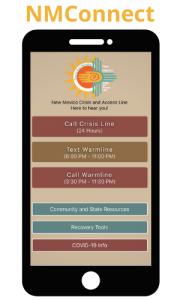
NMConnect App
Call, text and access mental health resources
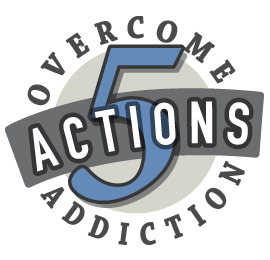
NM 5 Actions
Self-guided road map to understanding
and addressing substance use and addictive behaviors
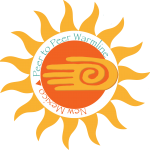
Peer to Peer Warmline
Call or text to connect with a peer
1-855-4NM-7100 (466-7100)
call 3:30pm – 11:30pm / text 6pm – 11pm
Path to Wellness
Mental Health Awareness Messages
The New Mexico Youth Risk and Resiliency Survey (YRRS) is a tool to assess the health risk behaviors and resiliency (protective) factors of New Mexico high school and middle school students. The YRRS is part of the national CDC Youth Risk Behavior Surveillance System (YRBSS), but the survey results have widespread benefits for New Mexico at the state, county, and school district levels.
Social and Emotional Resources
- How to Take Care of Your Mental Health During Social Isolation
- Countering COVID-19 (Coronavirus) Stigma and Racism: Tips for Parents and Caregivers
- 5 Easy Ways to Reduce Coronavirus Anxiety
- How to Talk to Children About Coronavirus
- Help Loved Ones with Anxiety
- Helping Youth Experiencing Homelessness
Re-Entry Plan
Wellness Policy
Our Wellness Policy is specifically designed to promote our district’s dedication to school wellness. Developing and implementing a comprehensive wellness policy is an essential component in enhancing the wellness culture of not only our district but also in developing healthy habits for life-long physical and emotional health for the future. As the focus of all of our schools is providing quality education, perhaps the most profound reason for a strong, implemented Wellness Policy is that healthy students have higher levels of academic achievement.
By working together we can ensure that “Healthier kids make better students. Better students make healthier communities.”



